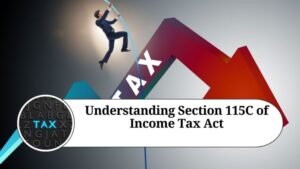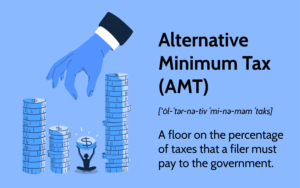In India, the Income Tax Act, 1961, ensures that all income, whether received or deemed to be received, is accounted for in the taxation process. Section 7 of the Act deals specifically with deemed to be received income, which is particularly relevant when it comes to Provident Funds (PF) and Pension Schemes. This blog will provide a comprehensive understanding of the various provisions under Section 7, including legislative amendments, and the implications for individuals contributing to recognized provident funds and pension schemes.
What is “Deemed to be Received Income”?
In the context of the Income Tax Act, deemed to be received income refers to income that is considered to have been received, even if it has not been physically received. The purpose of this provision is to ensure that all types of income, including contributions to retirement funds and pension schemes, are properly taxed, even if they are only credited to an employee’s account or transferred between accounts. This income is included in the employee’s total income for the assessment year and is subject to tax.

Section 7 of the Income Tax Act: Deemed Income from Provident Funds
Section 7 of the Income Tax Act lists the specific circumstances under which income is considered deemed to be received. The following key provisions apply to employee Provident Funds and Pension Schemes:
- Annual Accretion to the Provident Fund Balance (Rule 6 of Part A of the Fourth Schedule):
- The annual accretion (growth) in the previous year to an employee’s provident fund balance is deemed to be received, and is thus included in their taxable income for that year.
- Specifically, this includes:
- Employer Contributions: Any employer contribution that exceeds 12% (previously 10%) of the employee’s salary is deemed to be received and taxed.
- Interest on Provident Fund Balance: Interest credited to the provident fund balance that exceeds one-third of the employee’s salary, or is allowed at a rate exceeding the government-prescribed rate, is also deemed to be received.
- Transferred Balance in a Recognized Provident Fund:
- Any transferred balance to a recognized provident fund from another account or scheme is deemed to be received and is included in the employee’s total income for that year.
- Pension Scheme Contributions (Section 80CCD):
- Contributions made by the Central Government or any employer (including other employers) to an employee’s account under a pension scheme as per section 80CCD are also considered deemed income. This was introduced in the Finance (No. 2) Act, 2004, and amended by the Finance Act, 2007, to include contributions from all employers.
Legislative Amendments in Section 7
Over the years, Section 7 has undergone amendments to make the provisions more comprehensive and inclusive. Below are the key amendments:
- Finance (No. 2) Act, 2004:
- This amendment introduced the provision that contributions made by the Central Government or other employers to an employee’s pension scheme under Section 80CCD would be treated as deemed income.
- Finance Act, 2007:
- Further extending the scope, this amendment included contributions made by any employer, not just the Central Government, to an employee’s pension account under Section 80CCD.
Rule 6 of the Fourth Schedule: Employer Contributions and Excessive Interest
Rule 6 of Part A of the Fourth Schedule outlines what constitutes the annual accretion to an employee’s provident fund and details the taxation on excessive contributions and interest.
- Employer Contributions: Contributions made by the employer beyond the statutory limit of 12% of the employee’s salary are subject to tax as deemed income.
- Interest: Interest credited to the provident fund balance that exceeds 1/3 of the employee’s salary or is credited at a rate higher than the government-prescribed rate is deemed to be received.
Interest Rates on Provident Fund Contributions
The interest rate on Provident Fund balances has been periodically revised by the government. Below is a brief overview of the interest rate history:
| Date | Interest Rate |
|---|---|
| March 31, 1974 | 6% |
| April 1, 1974 | 6.5% |
| July 20, 1977 | 7.5% |
| October 26, 1978 | 8% |
| August 31, 1980 | 8.25% |
| June 1, 1983 | 9% |
| August 22, 1984 | 9.5% |
| June 17, 1985 | 10% |
| April 1, 1986 | 10.5% |
| March 31, 2001 | 12% |
| April 1, 2001 | 9.5% |
| September 1, 2010 | 9.5% |
These rates have been revised by the government over the years through notifications. The most recent rate of 9.5% has been in effect since September 1, 2010.
Taxation on Excessive Provident Fund Contributions and Interest
Under the current tax provisions, the following will be taxed:
- Excessive Employer Contributions: Any contributions made by the employer above the limit of 12% of the employee’s salary will be considered deemed income and taxed.
- Excessive Interest: If the interest credited to the provident fund balance exceeds 1/3 of the employee’s salary or is credited at a rate above the government’s prescribed limit, that excess interest will be deemed to be received and taxed.
FAQ: Deemed Income from Provident Funds and Pension Schemes under Section 7 of the Income Tax Act
1. What is meant by “deemed to be received income”?
“Deemed to be received income” refers to income that, under the provisions of the Income Tax Act, is considered as received even if it has not physically been received by the taxpayer. This includes income like contributions to retirement funds or pension schemes, which are treated as part of the employee’s taxable income.
2. What does Section 7 of the Income Tax Act cover?
Section 7 of the Income Tax Act includes provisions that specify certain incomes, such as contributions to a recognized provident fund and pension schemes, that are deemed to be received for tax purposes. These incomes are included in the employee’s total income for the relevant assessment year and are subject to income tax.
3. How does the annual accretion to the provident fund affect taxation?
Under Rule 6 of Part A of the Fourth Schedule, the annual accretion to the balance in an employee’s recognized provident fund is deemed to be received in the previous year and is included in the employee’s taxable income. This includes:
- Excess employer contributions (above the 12% of the employee’s salary).
- Excessive interest credited to the provident fund balance, which exceeds the prescribed limit.
4. How are contributions to pension schemes taxed?
Contributions made by the Central Government or any employer to an employee’s account under a pension scheme (as defined in Section 80CCD) are deemed to be received and are included in the taxable income for the year. These provisions were introduced in 2004 and amended in 2007 to cover contributions from any employer, not just the Central Government.
5. What interest rate is used to calculate the deemed income from provident fund balances?
The interest on provident fund balances is deemed to be received if it exceeds one-third of the employee’s salary or if the rate of interest exceeds the government-prescribed rate. The rate of interest has changed over the years, with the most recent rate being 9.5%, which has been in effect since September 1, 2010.
6. Are employer contributions exceeding the prescribed limit taxed?
Yes, if an employer contributes more than the prescribed 12% of the employee’s salary to the provident fund, the excess contribution is considered deemed income and will be taxed. This is in line with the provisions outlined in Rule 6 of the Fourth Schedule.
7. Is the interest earned on provident fund taxable?
Yes, the interest credited to a provident fund balance is taxable if it exceeds one-third of the employee’s salary or if the interest rate exceeds the government’s prescribed rate. In this case, the excess interest is deemed to be received and included in the taxable income.
8. Can I avoid paying tax on provident fund contributions?
The taxability of contributions to a recognized provident fund depends on whether the contribution exceeds the statutory limits (12% of salary) and whether the interest earned exceeds the prescribed rate. To avoid tax on provident fund contributions:
- Ensure that employer contributions do not exceed the prescribed percentage.
- Monitor the interest credited to ensure it does not exceed the permissible rate set by the government.
9. What happens if the interest rate on my provident fund balance exceeds the prescribed rate?
If the interest rate credited to your provident fund balance exceeds the prescribed rate set by the government, the excess interest will be treated as deemed income and will be taxed accordingly.
10. How often are the rules regarding provident fund contributions and interest updated?
The rules regarding provident fund contributions and interest rates are updated periodically by the Central Government through official notifications. The interest rate on provident fund balances has changed several times since its inception, with the most recent update being in 2010, where the rate was set at 9.5%.
11. How can I track my provident fund balance and interest?
You can track your provident fund balance and the interest credited through:
- Your Provident Fund Statement (issued annually or quarterly by the provident fund trust).
- Online Portals like the Employees’ Provident Fund Organization (EPFO) website, which provides access to your account details, including contributions and interest.
12. Will all contributions to my pension scheme be taxed?
Contributions to your pension scheme made by the Central Government or any employer under Section 80CCD are considered deemed income and included in your total income for taxation purposes. However, the tax treatment depends on the limits set under section 80CCD and other specific provisions.
Conclusion
Section 7 of the Income Tax Act plays a crucial role in ensuring that contributions to Provident Funds and Pension Schemes are properly taxed, even if not directly received by the employee. Understanding the nuances of deemed income, including excess employer contributions and interest, is essential for individuals to manage their tax liabilities effectively.
For employees participating in recognized provident funds and pension schemes, it’s important to be aware of these provisions to avoid unexpected tax burdens. Properly tracking contributions and interest credited can help in tax planning and ensure compliance with the tax laws of India.
By staying informed about these provisions, employees can effectively navigate the tax implications of their provident fund and pension scheme contributions.



